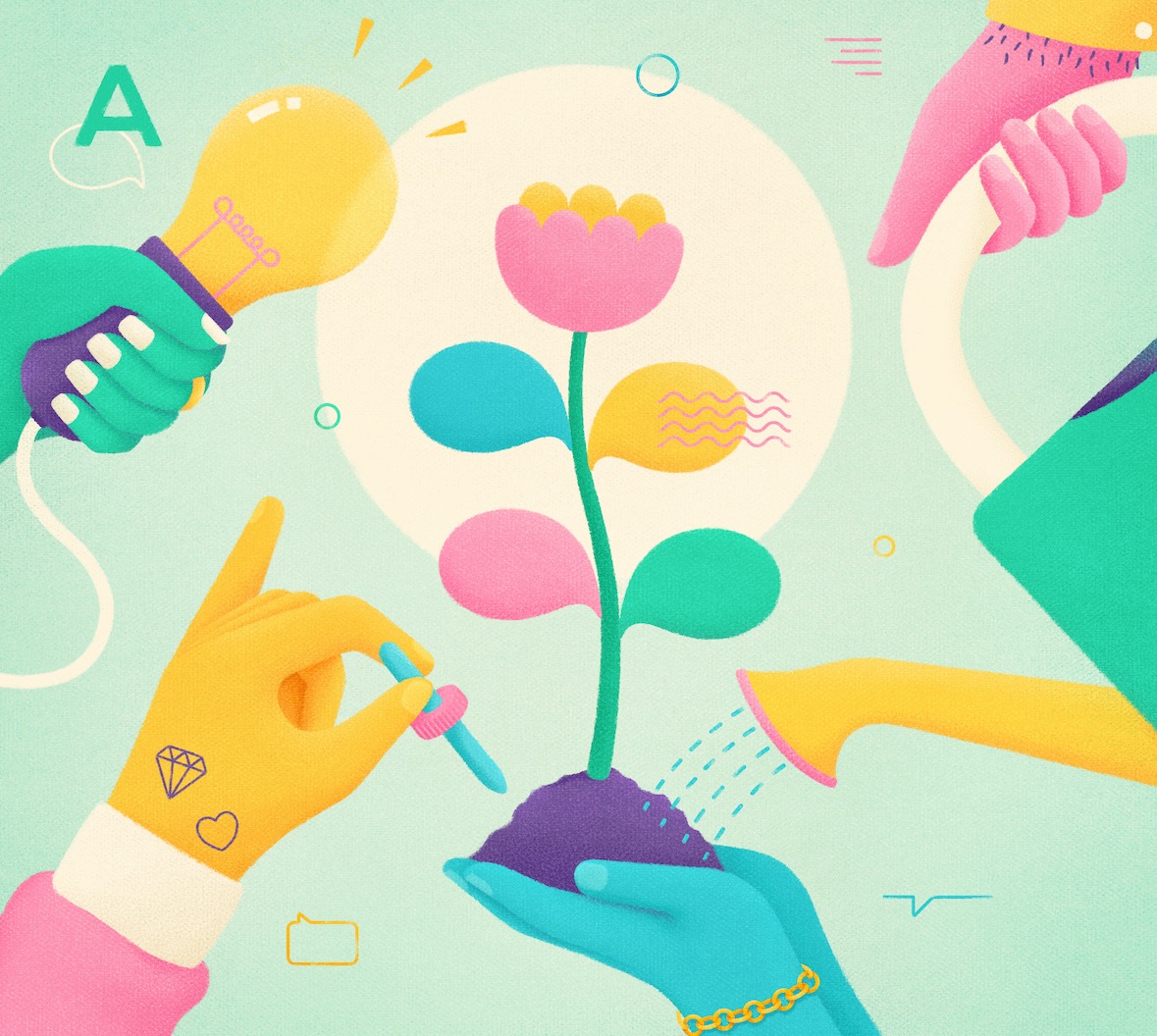We believe that there is value and power in hiring and nurturing teams of people from diverse backgrounds, beliefs, and human experiences.
Since Auth0’s inception, we have aimed to create a safe workplace and culture where every person can show up as their authentic self, speak their truth, learn, develop, and grow—at a global scale. And today, we are honored to welcome Natalie Hausia-Haugen, Auth0’s first Head of Diversity, Equity, and Inclusion (DEI), who will be integral in further developing Auth0’s culture of inclusion and belonging.
Welcome to Auth0, Natalie! We are so excited to have you.

What led you to a career in DEI?
I have always been inspired by people and have spent most of my career focused on the employee experience. And as the daughter of an immigrant and interracial marriage who was raised in the U.S. military and a woman of color who is “ambiguously ethnic” (i.e., wherever I am in the world, I get some of the blessings and challenges of whatever box people put me in), diversity and inclusion has just always been part of being in this world.
Over the past 20 plus years, the success I have had in every role has been rooted in helping others thrive, especially the underrepresented and the misunderstood. The goal of DEI is to help people thrive and teaching them to help each other thrive. This goal, combined with my personal background, are why I have always been drawn to DEI leadership roles.
Aside from this pull, there are three specific things I love most about this work:
- The tie to our shared humanity: you must help people better understand themselves just as much as you help them understand others.
- The ability to practice systems thinking: doing this work well also requires you to assess, develop, and improve the systems that impact a person’s ability to thrive.
- Being at the frontlines: this work often puts you on the frontlines of uncharted territory where there is no room for B.S. There is no place I would rather work than on the frontlines of DEI with people who are ready for the truth and to do the hard things.
In your opinion, where do you see the biggest challenges and opportunities as it relates to DEI within the industry? How and where can companies start?
In general, most of us know at our core that DEI is important and leads to many internal and external benefits, but we have had to feel out how we explain it, how we do it, how we make and measure progress. Businesses that are ahead of the curve have prioritized a culture of DEI and set it as an actual business goal.
And for me, it is essential to carve out dedicated teams or roles (that most likely didn’t exist) to provide guidance on DEI in company policies and talent programs. For example, you probably will need to make some fundamental shifts in how you hire, coach, assess, promote—changes to actual programs and processes themselves.
In my opinion, the biggest challenges that exist within the industry are:
- Formalizing DEI efforts: formal DEI efforts are relatively new in the business world, which means we still have a lot to learn, teach, try, and let take root before systemic change can happen. The biggest risk I have seen from this is folks can get discouraged and give up when results are not good the first time or fast enough. Consistency and accountability are key in this work.
- Speed: the speed and pace of startups in tech. Urgency is often the enemy of inclusion. When it feels like there is never enough time and we are moving quickly (especially in tech), it is normal to want the fastest option, even if it means compromising in other ways. How do we get sharp on what we are not willing to compromise short-term because we understand the long-term gain? And streamline and improve processes to decrease that short-term loss?
- DEI is not ‘one size fits all’ or ‘one and done’: DEI initiatives must be rooted in core values while also free to shift, shed and improve as your company learns and grows. Companies should approach DEI as they do consumer or industry trends, constantly learning how to be more relevant and effective. Not only should DEI programs change over time, but by region as well. As a global company, Auth0 is fortunate to have international elements of DEI. Yes, this makes it more challenging, but it also makes us better, no matter what country we sit in.
Why Auth0 and why now?
A more just, equitable, and inclusive world is something a growing majority of the world wants, no matter where you live or what industry you are in. Employees and consumers are no longer satisfied with companies to simply do no harm. Now, we are expecting companies to do good and be involved in the change.
I believe this makes things prime for the tech industry and Auth0 to step up and make bold moves. Tech, given its distinct cultural traits and integration across everyday life, can push the business world forward. And we at Auth0, given our deep values, experience as leaders, and strong culture, can push the tech industry forward.
My vision is for Auth0 to be DEI pioneers for the tech industry by modeling what it means to embed DEI into our business, talent, and social practices and become more successful because of it. I am grateful I get to do DEI as a job because companies like Auth0 know it is more than a good thing to do—it is necessary for staying relevant, competitive, and ahead in your industry.
What is your advice for organizations that have not prioritized DEI? How can they get started?
- Start now. It is never too late to get started.
- Be honest about if and how DEI goals can tie to your mission and values. If they are, make that clear to your entire team and measure accordingly. If DEI goals cannot tie to your mission and values, this is a great wake-up call to dig in. Quantify the ways a lack of DEI progress is going to hinder your relevancy, market share, and performance. If you are not ready to focus on DEI, at least you will have visibility to what it costs you.
- Make sure DEI does not feel like an HR-thing. It should feel like an all-of-us thing, led by business leaders who see its value in their business results.
- Focus on the cultural ingredients that enable inclusivity, like healthy debate, two-way communication, and trust.
- Listen to your employees. Their insights and feedback will clarify opportunities and should guide your priorities.
- Agree to stop promoting or celebrating people who do not model your DEI goals. This is one of the biggest ways companies lose credibility with their employees.
How do you encourage a workplace where employees can show up as their authentic self, speak their truth, learn, develop, and grow, especially in a remote environment?
First, you have to define what it means to be inclusive and consistently demonstrate that being anything less than inclusive is not acceptable Period.
You must also acknowledge there are employees who do not feel safe showing up this way, and for a good reason. And this truth must be understood, the experiences of these employees validated by all leaders.
Prioritize building a culture of psychological safety and mutual respect for every single person. Employees must believe (one) they will actually be seen and heard, and (two) they will not be punished for sharing something different or even incorrect.
Create a habit of asking: “Whose voice have we not heard?” and, “Who is missing from the table?”
I am a big fan of “When you know better, do better.” Within this is grace and understanding that people need to learn and relearn some things. As impatient as many of us are for change, we will all benefit from helping each other feel safe, saying: “I was wrong. I’m sorry.” “I didn’t get it.” “I’ve changed my mind.” “Now that I know better, I’ll do better.”
Regarding the remote environment, my biggest callouts are to:
- Recognize that it is a different way of working and requires us to deliberately consider if and how we need to adjust to ensure greater inclusivity. Ask the questions.
- Mind the Zoom-factor. Zoom can make it easier for the loudest voices to dominate because the audio will try to hone in on one voice at a time. Zoom can also make it easier for folks to participate because of functionalities like chat and raising a hand to signal a question or point.
- Always consider time zones. Your time zone is not the default.
- Be very deliberate about when/if you use side chat with a select group of people to continue the conversation after the meeting.

To learn more about Auth0’s DEI initiatives and opportunities to join our growing team, visit the Auth0 careers page.
About the author

Carolyn Moore
Senior Vice President of People (Auth0 Alumni)
Carolyn has spent the last three decades in global human resources roles helping fast growing startups, medium-sized companies, and Fortune 500 organizations—including Mercedes-Benz, Apple, Samsung, mSpot, and R2 Technology—form effective people strategies and build great cultures.
Carolyn lives in Redwood City, CA and enjoys international travel and cooking, and is currently studying wine with the goal of passing the sommelier exam.View profile
